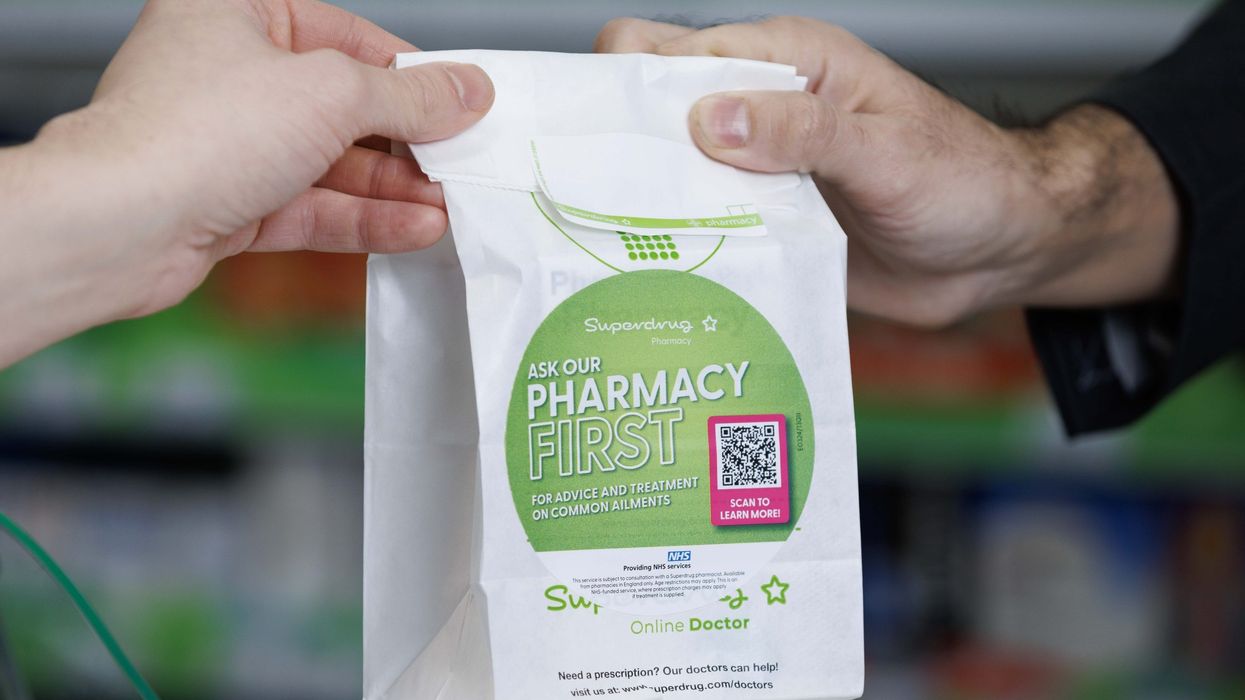Health Minister Stephen Kinnock has acknowledged that Pharmacy First has huge potential, noting that the service “hasn't realised its full potential.”
As part of efforts to enhance the service, Kinnock yesterday (30) announced £215 million in additional funding for Pharmacy First and other Primary Care Access Recovery Plan services.
This funding is in addition to the Community Pharmacy Contractual Framework (CPCF) allocations for 2024/25 and 2025/26.
“I feel strongly that pharmacy first has huge potential, but I think it hasn't realized its full potential because we've had to learn through its implementation, what has worked and what hasn't worked so well,” Kinnock told Pharmacy Business, during a media briefing yesterday.
“We're a government that takes decisions and makes policy on the basis of evidence. We have gathered the evidence, we've looked at the challenges, and we've spoken with the sector.”
“We've got the feedback on what we need to do to incentivize pharmacists on Pharmacy First and how we can also give them the space to do that,” he said.
He added that the £215 million allocation for Pharmacy First includes technical adjustments, such as changes to thresholds and fee rates.
Pharmacy First: Key changes coming in 2025
From April 2025, the consultation fee for Pharmacy First Minor Illness and Clinical Pathways will rise from £15 to £17.
Starting in June 2025, contractors who deliver a Minimum Activity Requirement of 20-29 Clinical Pathway consultations in a month will receive a fixed payment of £500, while those completing 30 or more consultations will receive the maximum payment of £1,000.
Additionally, the claim window for Pharmacy First will be reduced to one month from June to enable the variable payment.
To qualify for the fixed payment from June 2025, contractors must be registered and able to deliver the Pharmacy First Service, in addition to meeting the Minimum Activity Requirement for Clinical Pathways consultations.
“As is currently the case, only consultations under the Clinical Pathways element of Pharmacy First will count towards eligibility for the initial and ongoing fixed payments,” DHSC said in a letter to the contractors.
Meanwhile, NHS England has conducted a clinical review of the Clinical Pathways, with updated versions set to be published soon. The cost control mechanism linked to Pharmacy First will also be maintained to ensure service growth remains within the agreed funding envelope.
“We have agreed to maintain the current cost control mechanism linked to Pharmacy First, which will manage growth of the service to ensure delivery remains within the agreed funding envelope,” DHSC noted.
New CPCF funding
The funding guaranteed to the community pharmacy sector through the Community Pharmacy Contractual Framework (CPCF) has increased to £2.698 billion for 2024/25 and will rise further to £3.073 billion in 2025/26.
Additionally, the Department of Health has agreed to a one-off write-off of £193 million in medicines margin over-delivery.
Announcing the funding boost, Kinnock expressed gratitude to Janet Morrison and the Community Pharmacy England (CPE) team for “a constructive, positive partnership-based engagement throughout this process.”
“I think the fact that we've got to where we are today is due in very large part to the approach and the whole constructive attitude that we've had with the sector,” he said.
Kinnock noted that the initiatives and measures announced demonstrate the government’s long-term commitment to “rebuilding community pharmacy and delivering more services.”
When asked where the money has come from, Kinnock said: “This funding has come from the financial envelope negotiated between the DHSC and Treasury for DHSC overall budget.”
Alette Addison, deputy director for pharmacy, eye care and controlled drugs at the Department of Health and Social Care (DHSC), acknowledged that pharmacies dispensing at a loss happens when “there's not enough margin in the system.”
“This deal puts 900 million into margin, so we've increased it by £100 million on the five-year deal. And the work that we will also do to improve that system should help put a little bit more cushioning between the prices that the pharmacies pay and the prices they are reimbursed,” she added.
CPE chief executive Janet Morrison added that there's a lot of programme of work to be carried out in collaboration with the Department of Health, including reviewing distribution, branded medicines, and generics.
“We will be working very hard with the department, and we'll also hold their feet to the fire to ensure those commitments are followed through,” she stated, adding, "there’s a lot of work to be done."













